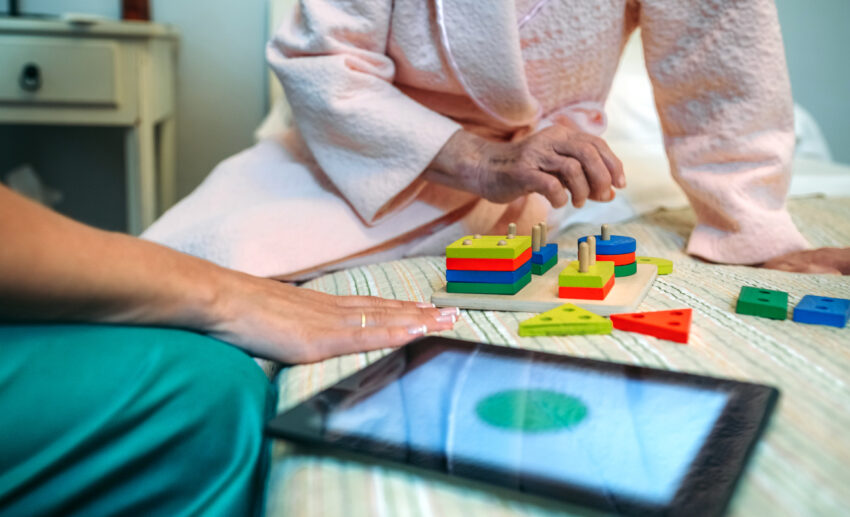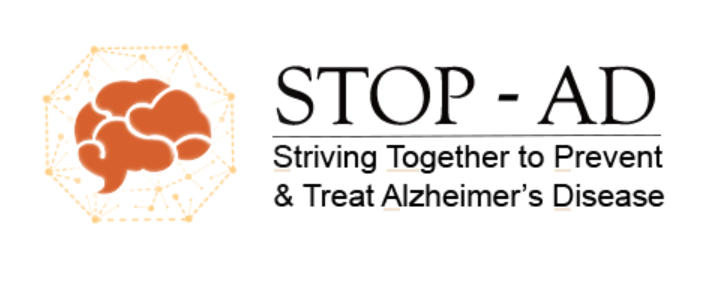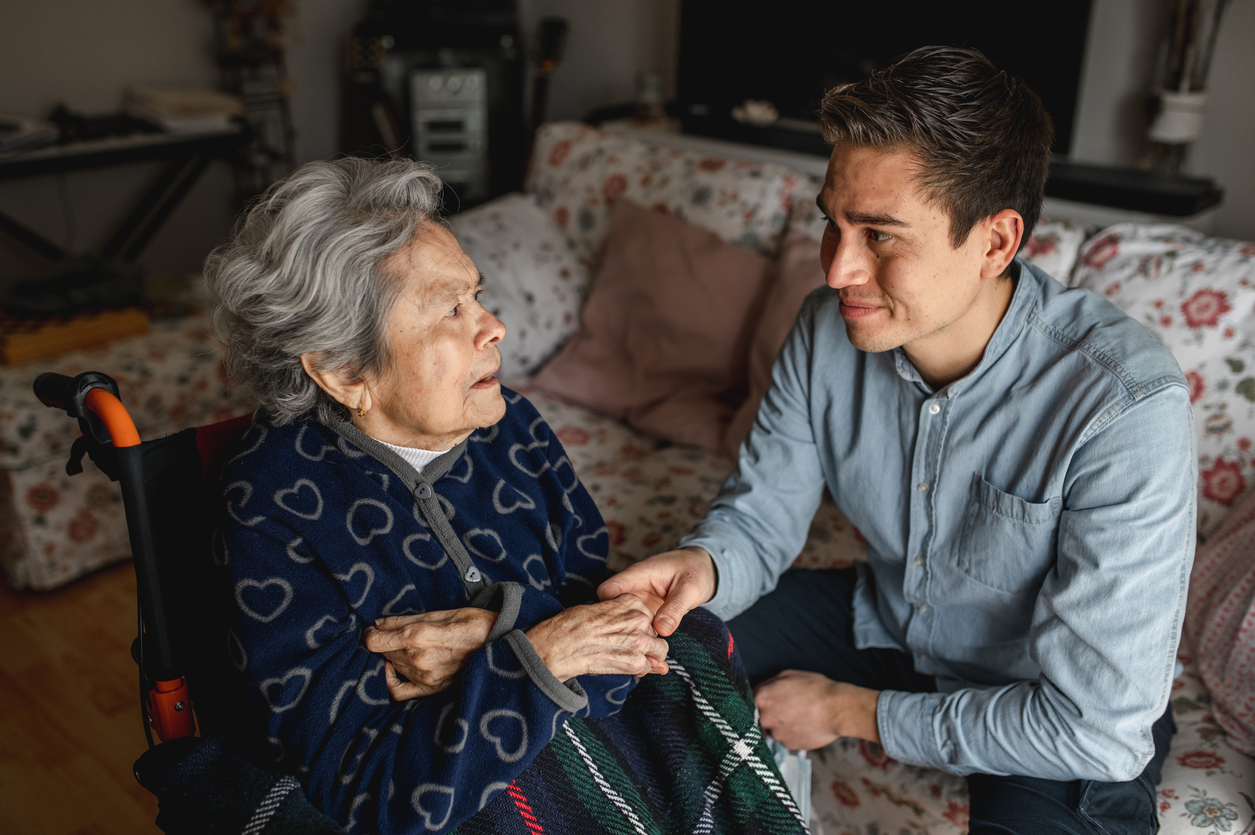
Share On Social!
Want to play memory and thinking tests and help millions of families with dementia?
The Brain Health Registry can help you do that.
Researchers at the University of California San Francisco (UCSF) developed a registry for adults interested in conducting brain tests that can help the future creation of treatments for Alzheimer’s, dementia, Parkinson’s, and other brain disorders.
Now, they’re partnering with the Glenn Biggs Institute for Alzheimer’s and Neurodegenerative Diseases at UT Health San Antonio to expand brain health research in the Texas region of the United States, through a partnership called STOP-AD.
Learn about the STOP-AD Brain Health Registry, how Alzheimer’s is affecting Latinos, and how clinical trials can help us tackle Alzheimer’s and other dementias.
JOIN THE BRAIN HEALTH REGISTRY!
About the STOP-AD Brain Health Registry
Researchers at UCSF first created the Brain Health Registry in 2014, with the goal of registering over 100,000 participants.
The partnership with UT Health San Antonio now allows them to reach a wider audience, including the majority Latino region of South Texas.

“Your health questionnaires and online tests of memory and thinking will be compared to individuals across the United States and around the world to help our researchers learn about behaviors and conditions that promote healthy brain aging,” according to the Biggs Institute, which is led by Dr. Sudha Seshadri.
When registering for the Brain Health Registry, participants are asked to enter contact information, demographics, health questionnaires, and online tests of memory and thinking that are similar to computer games. The information entered is secure and privacy protected.
“Our goal is to promote healthy brain aging through the prevention of Alzheimer’s disease and other conditions that affect brain function by encouraging people to join research studies. Brain Health Registry researchers may invite you to participate in future studies,” according to the registration page.
Participants are also offered the opportunity to learn about new research studies, such as clinical trials.
After registering, you will receive reminder messages from Brain Health Registry, asking you to update your profile, answer questionnaires, and to take more tests.
Brain Health Registry also recently launched a Spanish-language site to reach more Latinos.
“In the past, we didn’t use our resources to reach out in culturally appropriate ways. We haven’t done enough to make all people feel welcome,” said Dr. Michael Weiner, principal investigator for the Brain Health Registry, according to a press release. “It’s time to bridge the language barrier gap and let Spanish-speakers know that we appreciate their contributions to our research.”
For questions, please contact: info@brainhealthregistry.org
JOIN THE BRAIN HEALTH REGISTRY!
The State of Alzheimer’s among Latinos
Latinos with Alzheimer’s are projected to grow from 430,000 in 2014 to 3.2 million in 2060.
This seven-fold increase is due to Latinos being one of the youngest populations in the U.S., meaning this problem will worsen as they age.
Latinos are at risk for Alzheimer’s because of medical conditions that are considered risk factors– like high blood pressure, stroke, and heart disease – which are all prevalent among older Latinos.

Latinas face higher rates of Alzheimer’s than white women. This is due to genetics, lifestyle, and socioeconomic risks.
Alzheimer’s also comes at a high cost for Latinos. Although already the nation’s most expensive disease, a recent report revealed the cost could skyrocket in the future as the Latino older adult population grows from approximately 4 million today to more than 20 million in 2060.
Lifestyle and socioeconomic choices are also among the factors that affect disease prevalence in Latinos.
Many studies suggest that alcohol consumption, which is increasing among Latinos, can also influence the development of Alzheimer’s disease.
All of these factors lead to Alzheimer’s disproportionate burden on Latinos.
JOIN THE BRAIN HEALTH REGISTRY!
How Can Clinical Trials Help Latinos Deal with Alzheimer’s?
Clinical trials are an important way to help researchers learn more to help slow, manage, and treat Alzheimer’s.
But Latinos are often underrepresented in these trials, meaning the benefits may miss this group.
You can find an Alzheimer’s clinical trial near you in Spanish or English.
In San Antonio, volunteer for:
- An Alzheimer’s disease clinical trial at the Glenn Biggs Institute for Alzheimer’s and Neurodegenerative Diseases at UT Health San Antonio.
- The REACH trial; for each visit, volunteers are eligible for $100.
- The AHEAD trial; for each visit, volunteers are eligible for $50.
Also, Dr. Amelie G. Ramirez’s Salud America! program at UT Health San Antonio is sharing the stories of clinical trial heroes like Emilia Asto-Flores, Elsada Wilson, and Alma Lopez, with the support of Genentech, a member of the Roche Group.
We are using these stories to fuel Latino-focused recruitment strategies and systems for clinical trials in cancer treatment and Alzheimer’s disease.
To share your story, or share someone we could contact for a story, email Salud America! Digital Content Curators Josh McCormack or Julia Weis.
“It is vital for Latinos to participate in clinical trials,” Ramirez said. “This kind of research can go on to save the lives of countless people. But in order for that to become a reality, we need to see accurate, equitable representation in clinical trials. One way Latinos can help is by signing up to participate in a clinical trial.”
By The Numbers
142
Percent
Expected rise in Latino cancer cases in coming years



